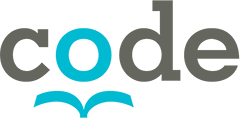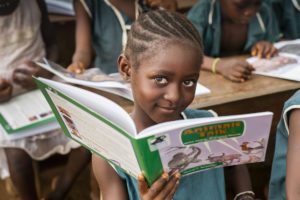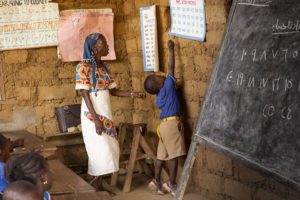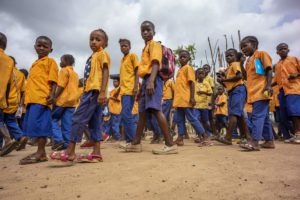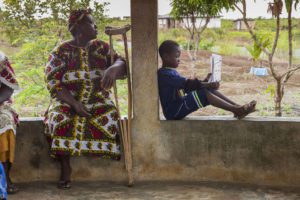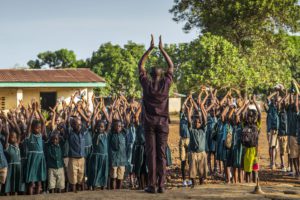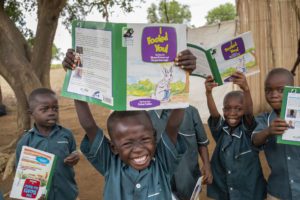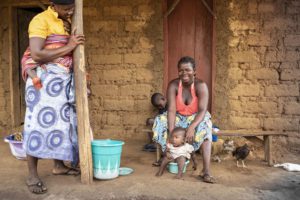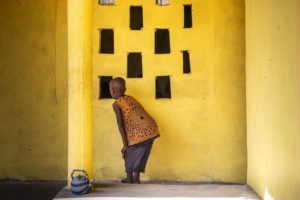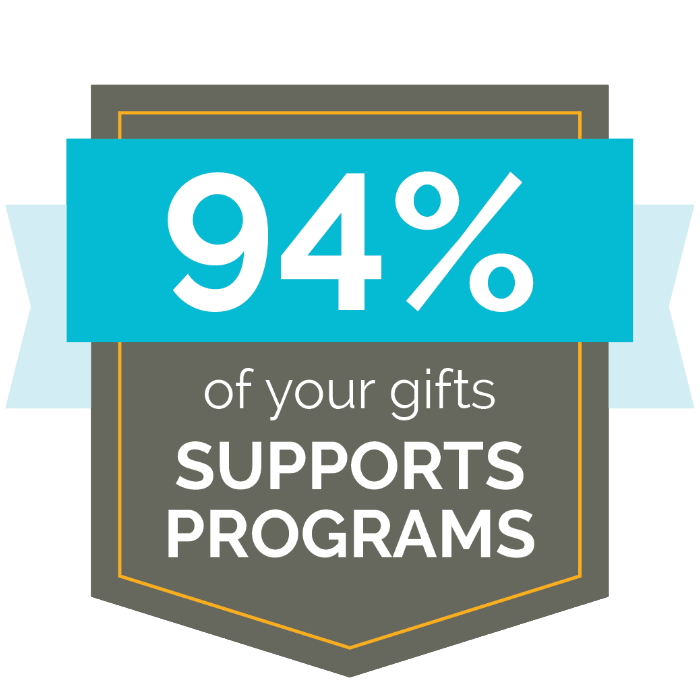
HOW CAN CHILDREN LEARN TO READ WITHOUT BOOKS?
We know that books are a powerful tool in the fight against illiteracy – no matter where you live. Yet in many communities in Africa where CODE works, students will never have seen children’s books or any books at all.
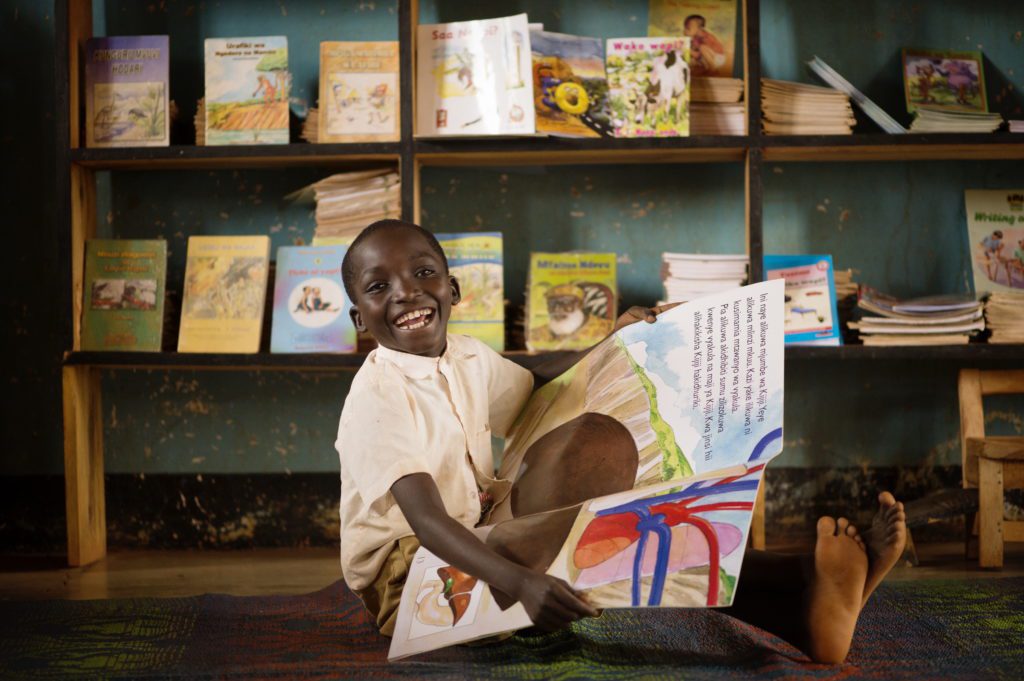
With over 50% of children in the developing world not learning how to read and write properly, children’s books are urgently needed! As are well trained teachers able to engage classrooms of young readers and learners.
Your support is helping us stack library and school shelves with colourful and engaging children’s books. Over the course of our more than 60-year history, we have delivered millions of books into the hands of children eager to learn. These books are:
- Written and illustrated by local storytellers
- Age appropriate
- Culturally-relevant
- In languages children understand
- One wide-ranging topics
A Peek Inside Our Favourite New Children’s Books
Growing Big! Growing Strong!
Written by Sallieu Sall, Isha M. Kaira, Walter Davies
Illustrated by Christopher Obuseli Parkinson
The Mango Mountain
Written by Watchen Johnson Babalola, James V. Dwalu, Llord Aidoo, and Mohammed Foboi
Illustrated by Brima Wolobah
SUCCESS STORY
YOU ARE HELPING GET GREAT BOOKS INTO THE HANDS OF CHILDREN DERTERMINED TO LEARN
We are excited to share that we've just concluded distribution of 216,350 books developed by local authors and illustrators in Sierra Leone. These books, distributed to 260 local schools, focus on a variety of girls' empowerment themes and were developed for grades 4, 5 and 6 students. From experience, we know that books can be powerful and appropriate tools for sharing important knowledge of girls' rights and informing young people’s attitudes and habits. These books contained 200 colorful illustrations and over 43 engaging stories.
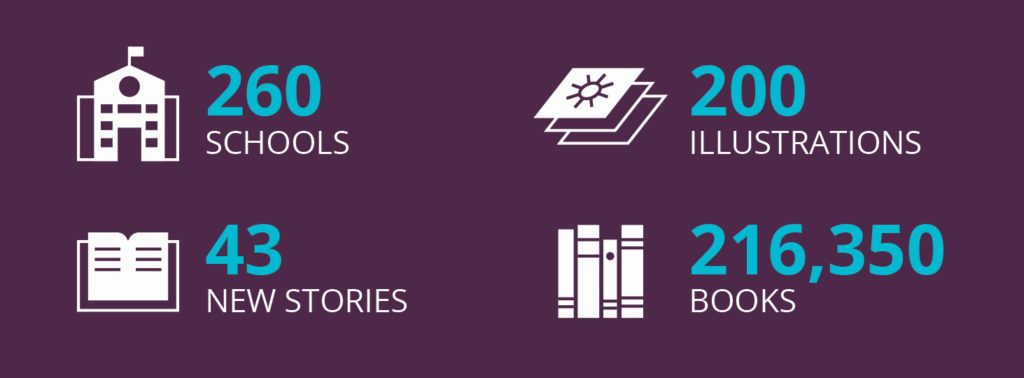
“The simple act of being able to read and write is truly transformational when we stop and think about it. It provides us the ability to learn. It enables us to communicate. It empowers us to advance. It elevates us all.”
– Peter Mansbridge, CODE Ambassador and former chief correspondent, CBC News

TOP FIVE BENEFITS OF BOOKS
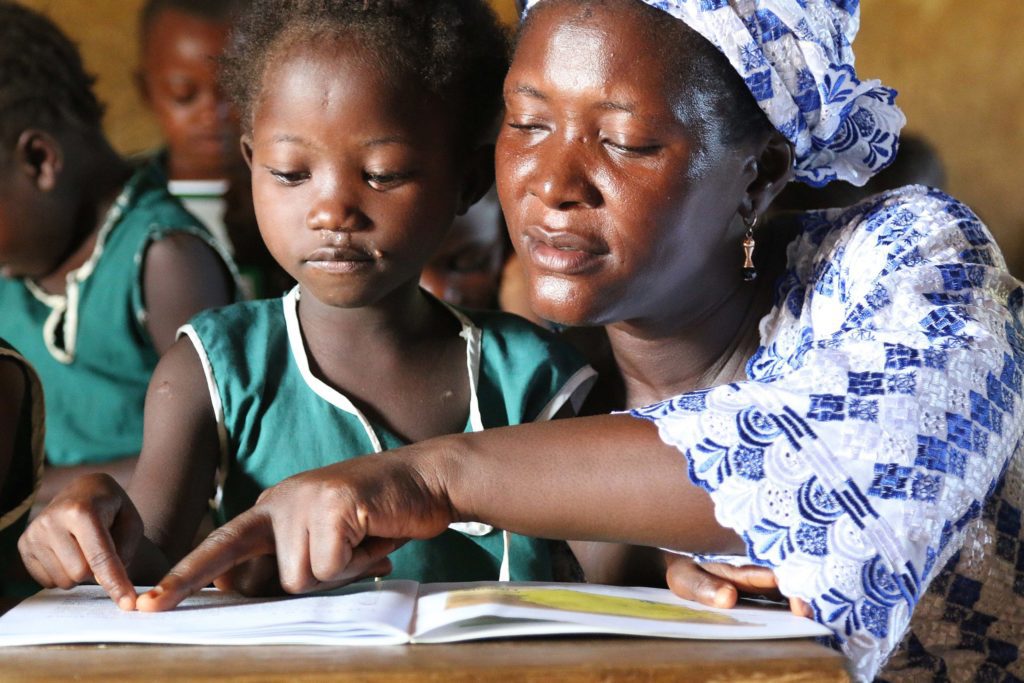
LITERACY
Books that are interesting and appropriate to a child’s reading-level and language are essential to building foundational literacy skills that will allow children to succeed in school and beyond. If children have not mastered basic reading skills by age 10 they are unlikely ever to learn to read.
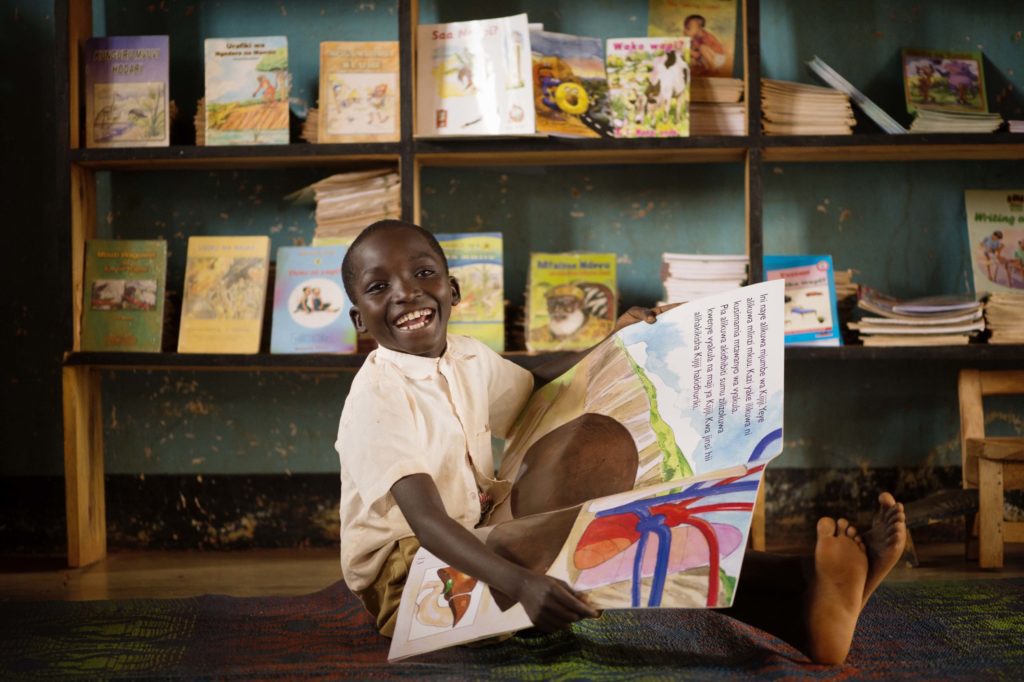
KNOWLEDGE
Books and other reading materials are a gateway to knowledge. And knowledge, in turn, allows people to make healthy decisions, to be self-sufficient and to prosper. Whether fact or fiction, books can be a powerful tool in building knowledge over the course of a lifetime.
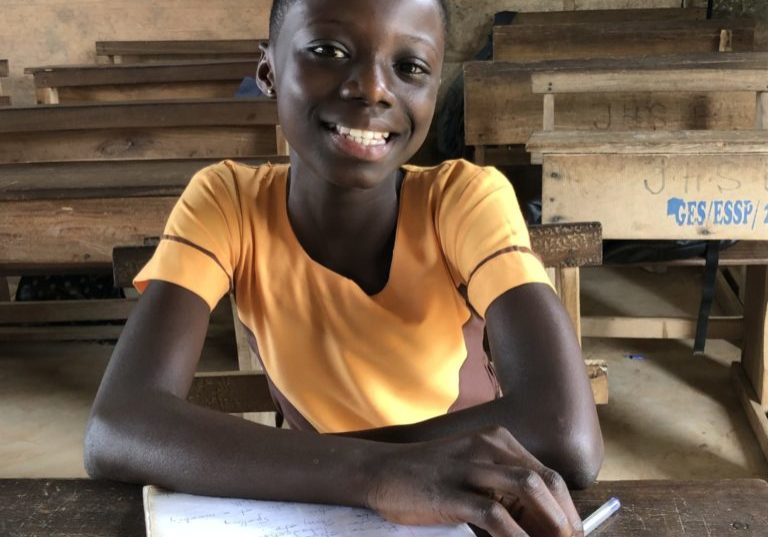
CONFIDENCE
Seeing oneself positively reflected in a book – whether it’s through gender, ability or ethnic background - can strengthen identity, feelings of confidence and self-worth. This is why CODE books, developed by local authors for local children, are so well loved.
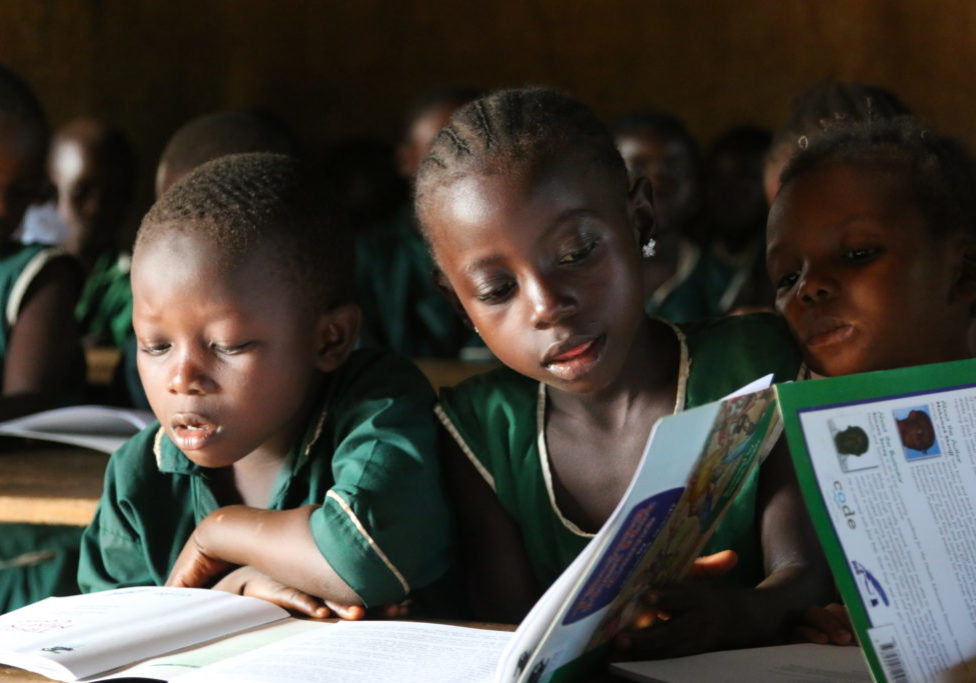
CRITCAL THINKING
Books and other high-quality reading materials in the hands of students and qualified teachers can help to encourage critical thinking and development of other 21st century skills like problem-solving. These are skills that will benefit children over the course of their lifetime.
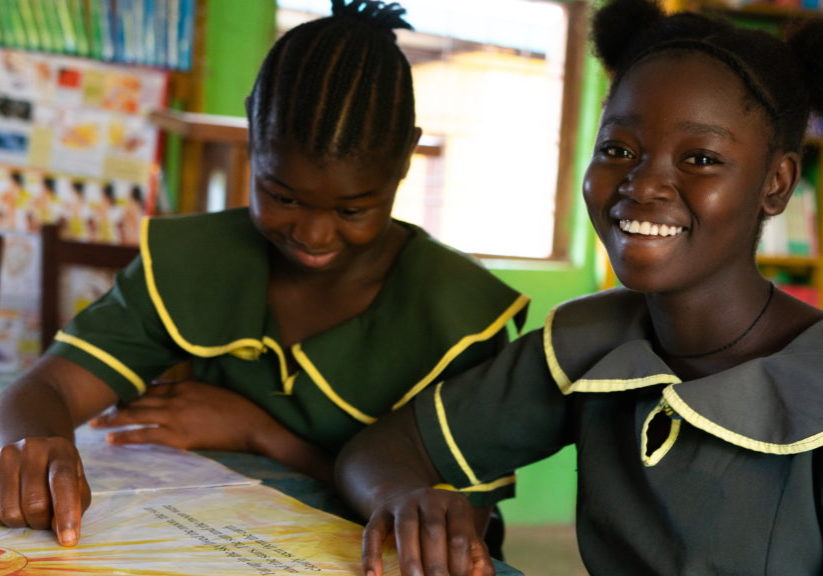
IMAGINATION
Books filled with engaging stories and colorful illustrations can help unleash a child’s imagination and open them up to a world of people, places and ideas that they would otherwise not have access to.
Gallery
If you can read and write, you can learn to do, and be, anything. That’s the idea behind CODE. Through teacher training, publishing of locally authored children’s books and distribution of high-quality reading materials, CODE works to improve literacy and education in some of the world’s regions of greatest need. For more than 60 years – together with our Canadian supporters – we’ve already brought the joy of reading and learning to ten million children across Sub-Saharan Africa. However, the job is not yet done. Learn how you can help to unleash a child’s potential through the power of literacy. Photo by Peter Bregg
With the generous support of our donors and partners, CODE builds literacy by providing schools across Sub-Saharan Africa with locally-authored children’s books in over 20 languages, and helps build the capacity and competency of teachers to effectively teach reading and writing in their classrooms. Photo by Peter Bregg
While school enrollment has increased significantly, distressingly poor quality of education threatens to seriously diminish any real development benefits. An estimated 274 million primary school children worldwide are not learning the basic foundational skills necessary to lead productive and healthy lives. Photo by Peter Bregg
Children who can read and write are given a better chance to contribute to the welfare and the health of their families, build civil society and give back to their communities. By learning to read and write, children can succeed not only in school but throughout their lives. Photo by Peter Bregg
Sub-Saharan Africa alone needs 17 million qualified teachers to fulfill the United Nations’ Sustainable Development Goal of having universal primary and secondary education available to every girl and boy by 2030. This gap must be closed and it’s all about teacher effectiveness. Photo by Peter Bregg
For more than 60 years – together with our Canadian supporters – we’ve already brought the joy of reading and learning to ten million children across Sub-Saharan Africa. However, the job is not yet done! Learn how you can help to unleash a child’s potential through the power of literacy. Photo by Peter Bregg
The cost of illiteracy to the global economy is an estimated USD $1.2 trillion annually. Investing in children’s ability to read and write helps to unleash a powerful cycle of opportunity, enabling families and whole communities to break free from poverty. Photo by Peter Bregg

